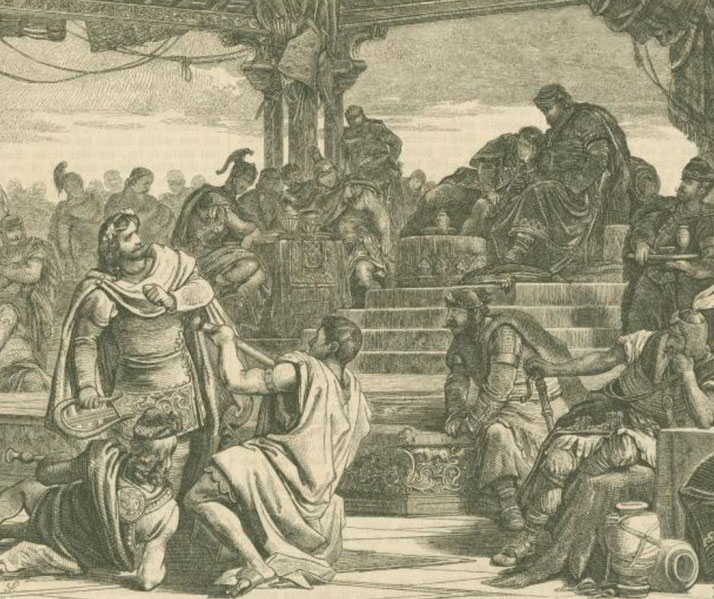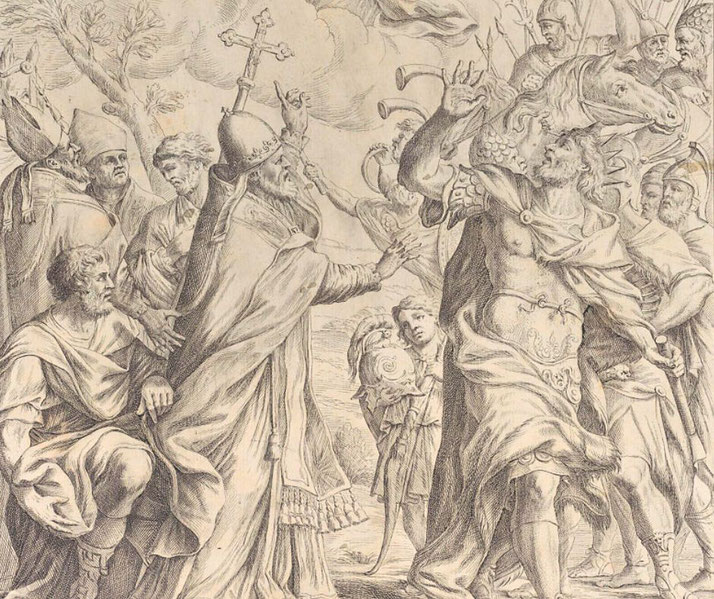Why Attila the Hun terrified the Roman Empire

Imagine a man so notorious that when he passed through your region, it might vanish from maps for centuries. That is not poor map-making: it is Attila, who had a talent for destroying settlements.
Long before modern warfare, he gave the ancient world a terrifying demonstration of how quickly things could collapse when diplomacy rode on a warhorse.
Where did Attila come from?
In the fifth century AD, as the Western Roman Empire weakened under the pressure of internal division and constant foreign attacks, a fearsome leader emerged from the eastern steppes.
Attila, ruler of the Huns from around AD 434 until his death in AD 453, became one of the most feared enemies of both the Western and Eastern Roman Empires.
His campaigns left cities in ruins, populations terrified, and Roman officials desperate for peace.
Roman historians later described him as the “Scourge of God,” believing that his destruction of their lands was divine punishment for their sins.
Attila ruled jointly with his brother Bleda until around AD 445, when he reportedly had his sibling killed in order to claim sole leadership.
His domain stretched across vast territories, from the Danube River deep into the Eurasian steppes.
The Huns were not a settled people. They were mounted warriors who moved swiftly, relied on excellent horsemanship, and used composite bows that could pierce armour.
Attila’s leadership brought a level of central authority previously unseen among the Huns, and his ability to organise military actions across several fronts set him apart from earlier tribal leaders.

Was Attila a barbarian or a clever strategist?
One of Attila’s most important actions was his use of Roman diplomacy to his advantage.
In the early 440s, he demanded large annual payments from the Eastern Roman Empire in exchange for peace.
The Treaty of Margus, signed in AD 435, forced the Romans to pay 350 pounds of gold each year.
After a short period of renewed fighting, Attila raised his demands to 2,100 pounds of gold annually.
This form of economic pressure showed that Attila understood the weakness of his Roman opponents and their willingness to pay for peace instead of fighting.
Why Attila attacked the Roman Empire
In AD 447, Attila began a brutal campaign into the Balkans. His forces attacked cities across Thrace and Moesia, advancing deep into Roman territory.
While later stories claimed his reach went as far south as Thermopylae, there is no strong evidence for this.
Constantinople itself was nearby, but the city’s strong Theodosian Walls stopped any attempt at siege.
The Eastern Roman Empire, weakened by disease, famine, and inner conflict, asked for peace and agreed to continue the payments.
Attila’s raids left much of the eastern Balkans empty of people and financially broken.
His focus then moved west. In AD 450, a dispute within the Western Roman Empire gave him an excuse to invade.
Honoria, sister of Emperor Valentinian III, sent a request to Attila for help, along with a ring.
Attila said this was a marriage proposal and demanded half the Western Empire as dowry.
When this was rejected, he led a massive invasion of Gaul in AD 451. The campaign ended at the Battle of the Catalaunian Plains, also called the Battle of Châlons.
There, a joint force of Roman and Visigothic troops, led by the Roman general Flavius Aetius, managed to stop Attila’s progress.
The battle was violent and unclear in outcome, but Attila withdrew the next day. It was the first time his army had been blocked in open battle.
In AD 452, Attila invaded Italy. He destroyed the city of Aquileia so completely that it was not rebuilt for centuries and its exact location became unknown.
Cities across northern Italy were looted or left empty in fear. The Roman government, without military power, sent a group that included Pope Leo I to talk with him.
The details of their meeting are unclear, but Attila agreed to pull back. Hunger, disease, and the risk of a Roman-Byzantine attack may have influenced his choice.

How did Attila the Hun die?
Attila died suddenly in AD 453, not in battle but after a night of eating and drinking to celebrate one of his marriages.
According to later reports, he had a serious nosebleed and choked to death in his sleep.
His sons split the empire among themselves but soon began to argue, and the Hunnic Empire fell apart within a few years.
What do you need help with?
Download ready-to-use digital learning resources
Copyright © History Skills 2014-2025.
Contact via email
With the exception of links to external sites, some historical sources and extracts from specific publications, all content on this website is copyrighted by History Skills. This content may not be copied, republished or redistributed without written permission from the website creator. Please use the Contact page to obtain relevant permission.





